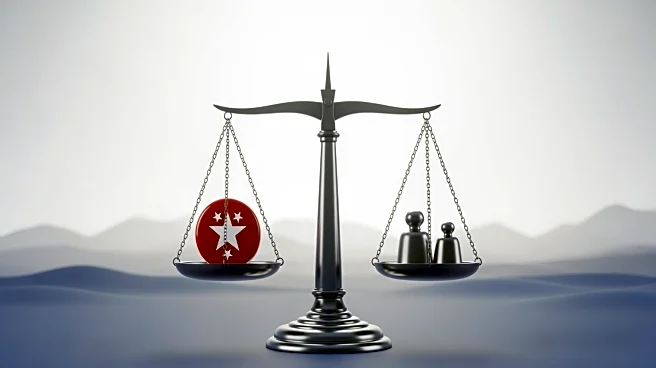What's Happening?
The Dutch election has resulted in a tie between the center-left Democrats 66 (D66) and the far-right Party for Freedom led by Geert Wilders. Both parties are projected to win the same number of legislative
seats, marking a significant shift in the political landscape. The election outcome is a major win for the political center, as D66 gains ground with its socially progressive and centrist economic policies. The far-right Party for Freedom, which had previously achieved a dominant result, is set to lose 11 seats. The election was forced by Wilders just two years after his party's previous success.
Why It's Important?
The election results indicate a shift towards centrist policies in the Netherlands, reflecting changing public sentiment and political dynamics. The loss of seats by the far-right Party for Freedom suggests a decline in support for extreme political positions, potentially influencing future policy directions. The tie between D66 and Wilders' party highlights the growing influence of centrist parties in European politics, which may impact the Netherlands' approach to social and economic issues. The outcome could also affect the country's role in the European Union, as centrist policies often align with EU values.
What's Next?
With the election results finalized, coalition negotiations are expected to begin as parties seek to form a government. The tie between D66 and the Party for Freedom may lead to complex discussions and potential compromises on key policy areas. The political landscape in the Netherlands is likely to evolve as parties navigate the challenges of coalition building. The outcome may also influence upcoming elections in other European countries, as centrist parties gain momentum.
Beyond the Headlines
The Dutch election reflects broader trends in European politics, where centrist parties are gaining traction amid growing polarization. The shift towards centrist policies may lead to increased collaboration on issues such as climate change, immigration, and economic reform. The election also underscores the importance of voter engagement and the impact of political campaigns on shaping public opinion. As centrist parties gain influence, there may be opportunities for new alliances and policy innovations within the EU.









